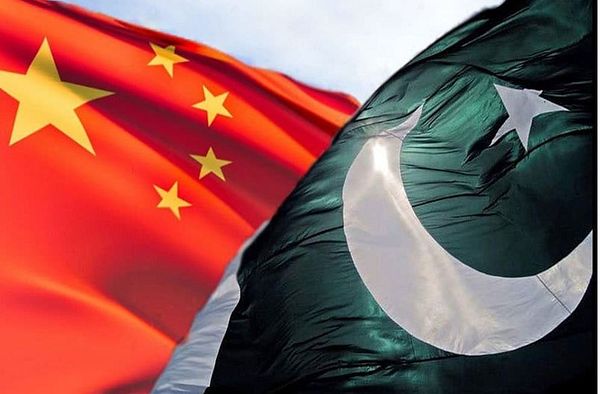
by Shah Meer 24 June 2023
The transition on unseen pace from bipolarity to multi-polarity in international relations is a new reality. The unprecedented rise of China on the world stage has resulted dramatically in competing strategies and geopolitical maneuvering. Given this backdrop, China-Pakistan relations and Pakistan’s geopolitical positioning have not only turning into a geopolitical spotlight, but also causing strategic insecurity in their rivals. These developments in international relations, consequently, have led several state-backed commentators to spread misinformation against the Sino-Pak relations.
One among them is Mr. Sameer Lalawani, a senior expert on South Asia at US Institute for Peace. Mr. Sameer is of the opinion that China-Pakistan relations have been evolved on mutual benefit but on asymmetric terms. Pakistan has gain more than China in their bilateral relations. Arguably, Mr. Sameer’s understanding of China-Pakistan relations does not display the real picture. Undoubtedly, Beijing and Islamabad have equally gained from their relations. Pakistan provides China relatively a shorter route to bypass the US-Controlled Strait of Malacca (from where 80% of Chinese imported oil passes) for its energy needs. Also, Pakistan is an alternative for China in the Indian Ocean vis-à-vis supply lines, that helps China to fight against its long Sea Lines of Communication (SLOC) ranging from South China Sea to Persian Gulf. If Pakistan does not provide China so coveted alternatives, India and the US will pose existential threat to China while suffocating its trade routes and energy supplies. Such provisions of Islamabad make Sino-Pak relations symmetric.
Sameer maintains that China has military bases on the coast of Pakistan especially in Gawadar, and even Port Qasim in Karachi is also working as a naval base for China. There are also prospects that China may develop bases in Ormara and Jewani. Categorically, China has no military bases on Pakistan’s soil. On May 12, 2023, The Times of India revealed, “People’s Liberation Army may be looking at setting up a military base on the shores of the Arabian Sea near Gawadar Port in Pakistan”. The Indian outlets words unveils that as of yet no Chinese base exits in Pakistan.
Mr. Sameer Lalawani further elaborates his claim and argues that Pakistan will allow China to use military bases for two reasons: first, Islamabad’s policy circles believe that it is in their interest to host PLAN that might add to deterrent value; second, Beijing has accumulated leverage over Islamabad in the shape of debt and providing advanced technology to Pakistan. Pakistan has only existential threats from India against whom Islamabad has already developed a Full Spectrum Deterrence. Why would Pakistani strategic circles prefer to be a target of western wrath at war time for just adding a little to its deterrent value? As part of debt, Chinese loans to Pakistan just account less than the one-third of Pakistan’s overall debt.
Besides, Sameer declares China-Pakistan strategic understanding as a Threshold Military Alliance by which he means that a formal China-Pakistan military alliance is not inevitable. Mr. Sameer sounds correct. Unlike India, Pakistan has been trying to abstain from joining any military alliance amid growing international radicalization. Islamabad has strategic clarity to remain non-align in the east-west confrontation. Additionally, Mr. Lalawani opines that Pakistan will inevitably join China in any case of east-west confrontation. Arguably, it is very early to prognosticate that who joins who seeing the fast evolving international relations.
On China-Pakistan Economic Corridor, Mr. Sameer centers his argument around misinformation. He asserts that Pakistan has dramatically misperceived the Chinese-led project which brought Pakistan on the verge of the debt trap. He points that no socio-economic benefits Islamabad have drawn from the mega-project. However, the empirical data suggests otherwise. CPEC enhances regional connectivity, especially the strategically important ML1 projects which connects Pakistan to China through railways and spreads a net of railway tracks from the South of Pakistan to its north. It is estimated that infrastructure projects have made more then 30,000 jobs as of now. In agriculture, CPEC projects can irrigate more than 300,000 acres of land. On energy side, there are six major renewable energy projects that can help Pakistan to transform to renewable energies and meet its international obligation of net-zero trap.
In sum, the real face of China-Pakistan relations is not what some state-backed commentators propagate. The bilateral relations of both countries are based on mutual benefit and symmetry. Pakistan has its own course of action and national interest to pursue which Islamabad have been doing calculatedly. There are no Chinese bases in Pakistan, and Beijing’s investments in Pakistan leading to socio-economic opportunities and regional connectivity. And, indeed, China-Pakistan relations are higher than Himalayas, deeper than ocean, sweater than honey and stronger than steel.



0 Comments
LEAVE A COMMENT
Your email address will not be published